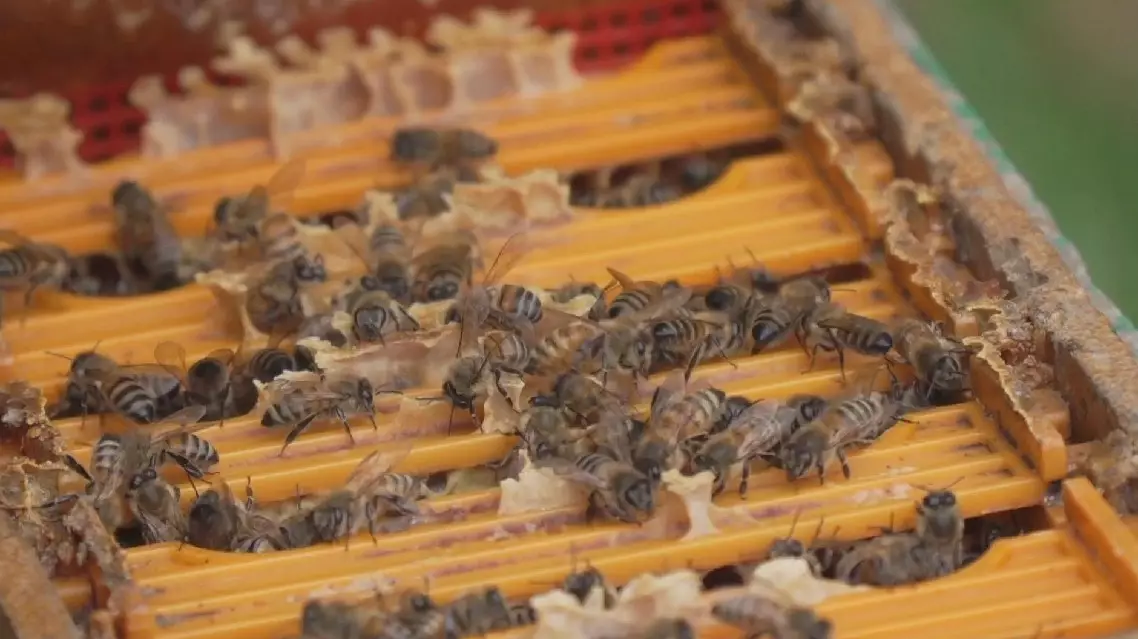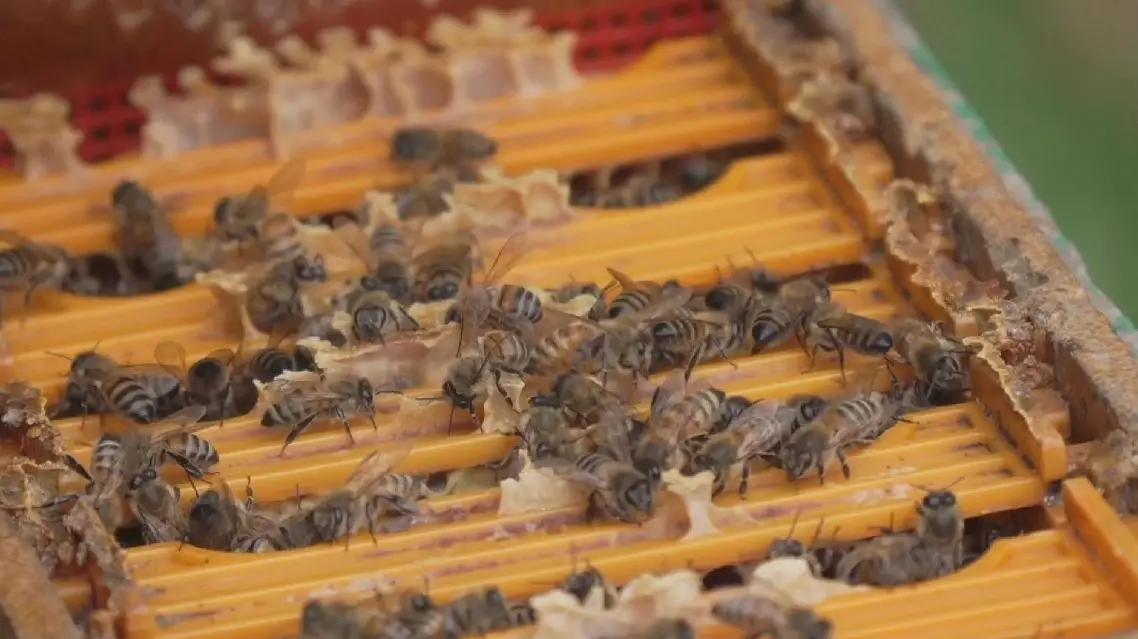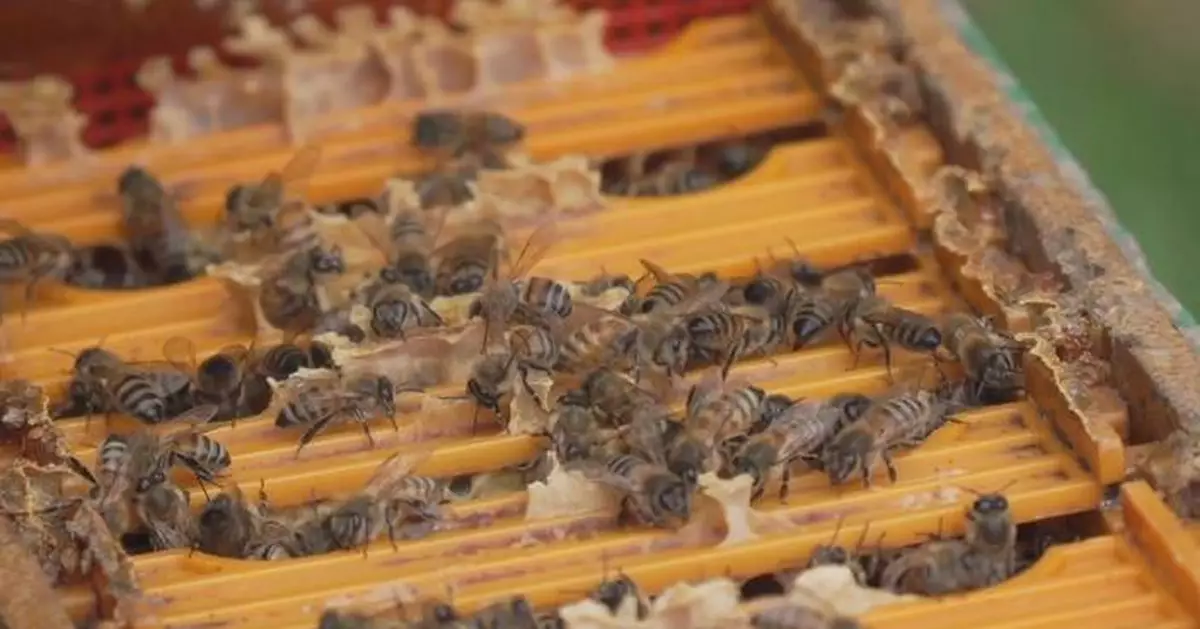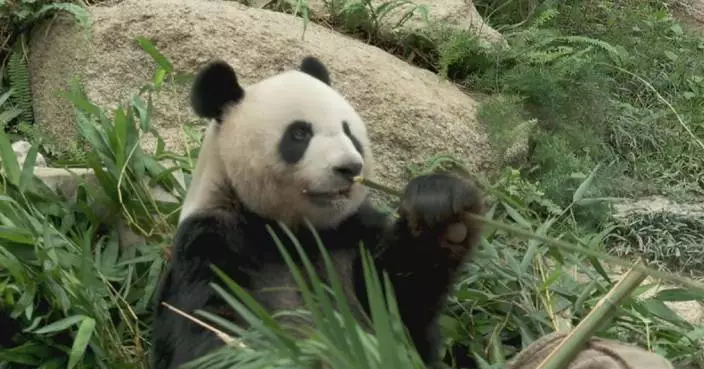As the globe gets warmer, Italy's beekeeping industry faces severe impacts from climate change, leading to a decline in honey harvests.
Piedmont, a major honey-producing region in northwest Italy, has more than 400 apiaries.
A veteran beekeeper Massimo Carpinteri, who has been in the industry for nearly 50 years, said that unusual weather this year has drastically reduced honey production, resulting in the average honey yield per hive this spring only 3.7 kilograms, roughly one-sixth of the usual amount. "The seasons are a bit reversed. Winter is warmer. But when April arrives, it begins to freeze, it begins to rain, it starts to get cold. And this year the rain and the cold weather lasted from early May to mid-June. So it is a very bad year for honey production," said Carpinteri.
Carpinteri also said that extreme weather conditions have become more frequent since 2011, affecting plant growth cycles and threatening bee populations.
"When it is cold and the weather is bad, the bee queens would lay fewer eggs, and the bee families would get smaller. Therefore, there would be fewer bees that go out to collect pollen to make honey. Sometimes, they would even stop laying eggs," said Carpinteri.
According to the World Meteorological Organization (WMO), the global average surface temperature from January to September this year was about 1.54 degrees Celcuis higher than the pre-industrial average, making 2024 probably the hottest year on record.
Extreme weather conditions also damage bee plants, leading to the decline of flowers. As a result, some beekeepers have to resort to artificial feeding to sustain their hives, while others have to relocate in search of bee plants. All cause costs and uncertainty increase.
According to the Food and Agriculture Organization of the United Nations, 91 out of the 107 major crops vital to human beings rely on bees for pollination. Without bees, about 40,000 plants will face difficulties in reproduction and potential extinction.
Climate change poses significant threats to bees and other pollinating insects, according to Simone Tosi, an assistant professor at the Department of Agricultural, Forest and Food Sciences of the University of Turin.
"Undoubtedly, the biggest impact of climate change on pollinators is the rise of temperature or the change in temperatures, because it will cause the plant community to change. On the other hand, pollinators are closely linked to the climate of the environment and the weather. If these factors change dramatically, it will certainly impact their ability to survive and behave in a certain environment," said Tosi.

Climate change hits Italy's beekeeping industry hard

Climate change hits Italy's beekeeping industry hard



















































